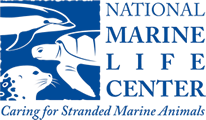High School Teachers’ Professional Development – From Land to Sea
From Land to Sea: Integrating Science and Engineering Practices Into Your High School Curriculum
 This one-week professional development institute for high school educators combines content and skill development sessions taught by scientists, content specialists and professional educators. Institute partners include the Museum Institute for Teaching Science, National Marine Life Center, Massachusetts Maritime Academy, and Woods Hole Oceanographic Institution.
This one-week professional development institute for high school educators combines content and skill development sessions taught by scientists, content specialists and professional educators. Institute partners include the Museum Institute for Teaching Science, National Marine Life Center, Massachusetts Maritime Academy, and Woods Hole Oceanographic Institution.
Investigate the connections between marine science, engineering, and literacy as you explore investigations to bring the next generation science and engineering practices into your high school curriculum. Learn how engineers and scientists work together to develop innovative technology  and methods to explore the ocean and the plants and animals that live in its diverse habitats. Explore the coastal environment as you investigate life between the tides. Investigate the impact of water quality on the tiny organism at the base of the food web and how this impacts marine mammals, sharks and other creatures. Become part of a research team investigating the mystery of a toxic plankton bloom or fish kill. Find out how robotics are helping scientists track sharks and learn more about shark biology and populations and build your own robotic shark to take back to your classroom. Spend a day in Woods Hole sampling the waters of Vineyard Sound and meet with WHOI scientists in their
and methods to explore the ocean and the plants and animals that live in its diverse habitats. Explore the coastal environment as you investigate life between the tides. Investigate the impact of water quality on the tiny organism at the base of the food web and how this impacts marine mammals, sharks and other creatures. Become part of a research team investigating the mystery of a toxic plankton bloom or fish kill. Find out how robotics are helping scientists track sharks and learn more about shark biology and populations and build your own robotic shark to take back to your classroom. Spend a day in Woods Hole sampling the waters of Vineyard Sound and meet with WHOI scientists in their  research labs. Visit a marine animal hospital to witness the science and technology involved in wildlife rehabilitation. Discover marine mammal and sea turtle characteristics and adaptations that have led to impressive technologies we use every day. Learn how to find and use real time research data and engage your students in citizen monitoring projects. Uncover the technology used in tracking programs of birds, marine mammals and sea turtles. Explore examples of how science provides engineers with the foundations to create solutions to real world problems as you immerse yourself in inquiry-based investigations and develop a portfolio of resources you can use in the high school classroom.
research labs. Visit a marine animal hospital to witness the science and technology involved in wildlife rehabilitation. Discover marine mammal and sea turtle characteristics and adaptations that have led to impressive technologies we use every day. Learn how to find and use real time research data and engage your students in citizen monitoring projects. Uncover the technology used in tracking programs of birds, marine mammals and sea turtles. Explore examples of how science provides engineers with the foundations to create solutions to real world problems as you immerse yourself in inquiry-based investigations and develop a portfolio of resources you can use in the high school classroom.
This course is targeted at High School Educators.
Course Dates:
June 14 Introductory Session (8:30 am – 12:30 pm);
July 7 – 11 (8:30 am – 3:30 pm)
Registration Fee (40 PDPs):
$350/individual;
$325/team of 2 or more teachers from same school district
Graduate Credit Offered (3 credits, 67.5 PDPs):
Cambridge College – $150;
Framingham State University – $225
For more information and to register, visit the Museum Institutes for Teaching Science website at:
http://mits.org/2014-summer-professional-development-institutes/.
